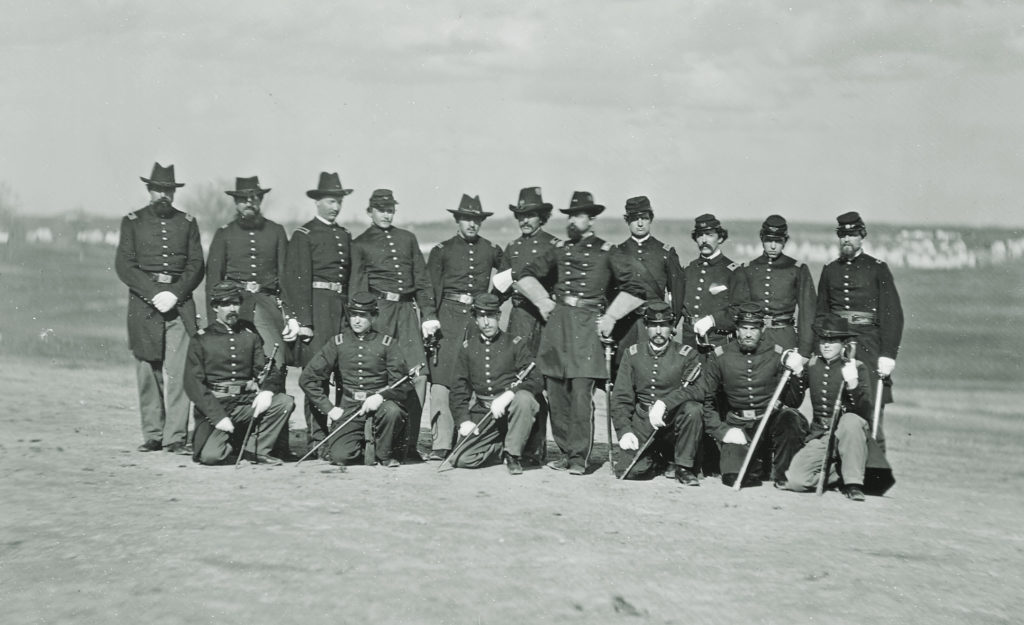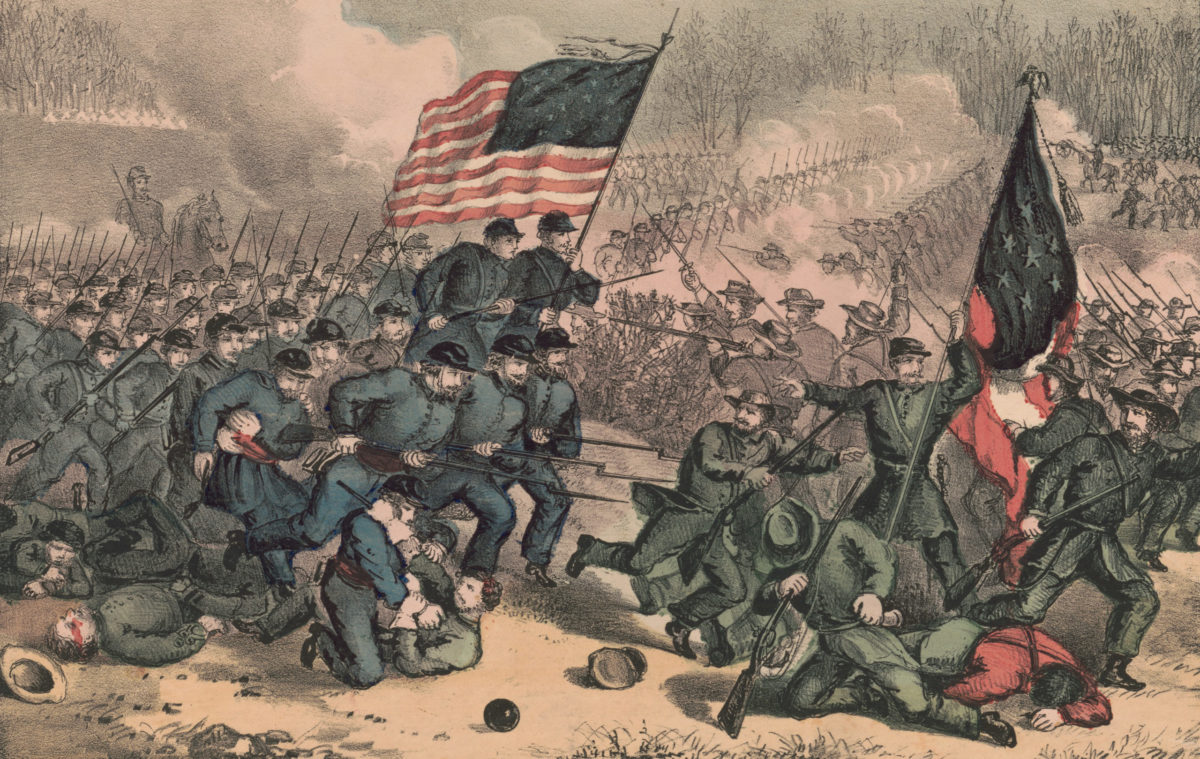The end of August 1862 proved to be a hot time for 1st Sergeant Anthony Gardner Graves Jr. of the 44th New York Volunteer Infantry. In the following letter, Graves describes his regiment’s harrowing August 30, 1862, assault on the notorious Unfinished Railroad Cut during the Second Battle of Bull Run.
Graves’ regiment, like the other Union regiments that attacked the Confederates sheltering in the man-made ditch, was thrown back with heavy losses. To make matters worse for Sergeant Graves, he was captured, an ordeal he also describes in the letter below.
Fortunately for him, he was quickly paroled, and later promoted to lieutenant. Graves fought on Gettysburg’s Little Round Top at that rank (his regiment’s monument is the “castle” on that hill). He was wounded in the fighting at North Anna, Va., May 23, 1864, and discharged for disability on June 30, 1864.
Graves would reenlist in 1864 in the 11th New York Independent Battery (light artillery) and again rose rapidly to the rank of Lieutenant. He was then assigned to detached service commanding the ambulance corps, and, in April 1865, as an assistant quartermaster.
This letter is one of thousands of letters transcribed by William Griffing as part of his online repository of Civil War letters, Shared & Spared. For more of the compelling letters he makes available to read, visit the Shared & Spared Facebook page.

Camp near Arlington Heights, Virginia
September 7th 1862
Dear Sister,
Excuse me for not writing to you before as I have been placed so that I could not possibly. We have been on the march for the past three weeks every day with nothing but half rations to live on and I am about used up. I am at present at this camp awaiting orders to be sent away. It is a very pleasant place and I get plenty to eat and I am recruiting up quite fast.
I was in the battle on Saturday the 31st and thank God, come out all right with the exception of being taken prisoner by the rebels. The particulars of the fight you will read in a letter to John. We laid under fire from nine o’clock in the morning to four in the afternoon. All the morning we laid flat on the ground supporting a battery with the shells and solid shot flying thick and fast all around us. While laying here we only had two men killed with a solid shot which went directly over my head.
We was ordered to advance about one o’clock which we done to within about five hundred yards of the rebels where we was ordered to lay down while the shells was bursting thick and fast over our heads and tearing away the branches of the trees. Oh! it’s an awful feeling to be laying down with shot and shells bursting right over us and expecting every minute to be called out of this world by one of these horrible missiles.
At about two o’clock we was ordered to get up and advance on the double quick across the open field [on John Dogan’s farm] and take the rebel batteries. We all jumped up promptly, deployed column and advanced into the field with grape and canister a pouring into us and making sad havoc in our ranks. First a shell would burst over my head, then a round shot would whiz by, then the grape and canister would rattle into us, then the moans and groans of the dying and wounded is too horrible to write about. Lieut. [Charles W.] Gibbs was struck in his canteen by a piece of shell which only stunned him a little. Instantly afterwards he was struck in the arm by a musket ball which broke one of his bones just above the wrist. He was right by the side of me and I expected every minute that my turn would come. I got safely up to the top of the knoll where there was a strip of small trees.
The rebels was concealed behind these into an old railroad ditch so it was impossible for us to see them and they poured such a galling fire into us that we had to retreat and before we could get away, the rebels was on me so I had to give up and they took me prisoner. They kept me five days without anything to eat and I never was so near starved in my life. We could not get nothing to eat but some green corn and green peaches. I managed to get a small piece of corn bread from one of the rebels for which I gave him a knife and pocket comb.
The rebels are nearly starved themselves. I think they would of fed us if they had it to give. They treated us very kindly and done the best that they could for us. They are awful hard up for food and clothing. The most of them have no shoes to their feet. In fact, they don’t look like civilized people. They look more like a lot of Indians—a dirty, filthy, greasy-looking set of devils. I saw Stonewall Jackson and he looks as bad as the common soldier. You could not tell that he was a general.
The next day after the battle, I got leave to visit the battlefield with a guard and of all the terrible sights I ever saw, it was there. The whole field where we advanced over was strewn with the dead and wounded. They laid in all shapes. In some places in perfect lines. I saw Col. [Edward] Frisby’s body stripped of everything but his shirt and drawers. Our dead had their pockets rifled of everything and their rations out of their knapsacks was taken. We fought the rebels Thursday, Friday, Saturday, Sunday, and Monday and we was whipped every day and our whole army has fallen back in Washington.
I must close as I have no more paper to write on. I lost everything I had—shirts, drawers, socks, pocket handkerchieves, paper and all, and I am fully hard up.
Give my love to Mother and Father and all inquiring friends. You need not write until you hear from me again. My regiment has gone into Maryland. Goodbye for the present. From your loving brother, — Anthony G. Graves, Jr.
historynet magazines
Our 9 best-selling history titles feature in-depth storytelling and iconic imagery to engage and inform on the people, the wars, and the events that shaped America and the world.


